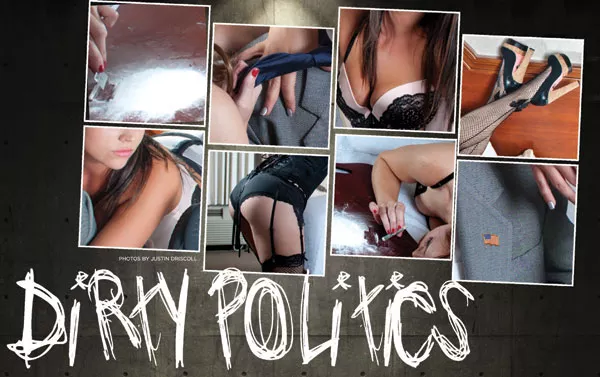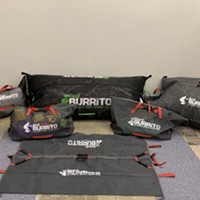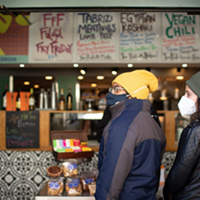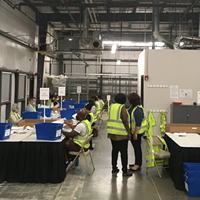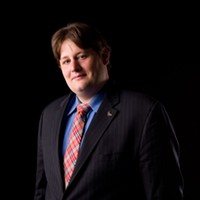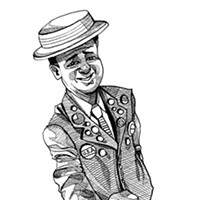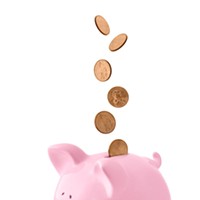Dirty politics: Charlotte's underworld hungrily awaits the DNC
Hookers, pimps and drug dealers ready for the VIPs
By Christina Wilkie and Ryan Pitkin @pitkin_ryanThe VIP section of a popular nightclub in Charlotte was booming on a Thursday night in mid-June, as well-dressed weeknight revelers passed around top-shelf bottles of liquor, small bags of cocaine and Molly, a purified form of ecstasy.
A clean-cut lawyer who looked to be in his early 30s complained to a reporter that he had a case to try at 8 the next morning and couldn't partake in any of the "fun." He promised his friends, who were indulging in a variety of drugs and booze, that he would stick around later the next night.
This is a typical night in the haze of Charlotte's shadow economy, a thriving black market of drugs and prostitution fueled by the wealthy young professionals who work in the "uptown" financial district. As city leaders brace for protests and parties that will ignite like molotov cocktails across Charlotte during September's Democratic National Convention, entrepreneurs in this shadow economy are quietly preparing to take advantage of the influx of potential customers.
As these impresarios see it, hundreds of thousands of dollars stand to be made in illicit transactions over the three days and nights of Sept. 4 through Sept. 6.
James, a bartender whose name CL has changed to protect his identity, says the economic boost provided by the convention will trickle down — all the way down. He should know. James plans to return to his old trade: narcotic sales.
"Anything that helps the economy is going to help everyone's economy, from the bartenders and restaurant owners to the drug dealers," James says, as he pours drinks at the bar he works at in the downtown area.
Because of the stress it put on him, James recently gave up his side gig dealing cocaine and other drugs to patrons of Charlotte's high-end bar scene. But he says he can't pass up the opportunity the first week in September will bring.
"I will be loaded up that week," he says.
Thomas is a local nightclub promoter who knows well the habits of his clientele. Because of the risk — and grave consequences — that come with transporting drugs across state lines, Thomas says many visitors will be on the hunt during the convention. The DNC is expected to bring 35,000 people to Charlotte, including some 5,000 delegates and VIPs, 15,000 journalists, and another 15,000 staffers, volunteers, security personnel, tourists, protesters and vendors.
Thomas — whose name also has been changed — says the fancy suits of powerful politicians and executives can be deceiving when it comes to partaking in drugs and other vice. "There are so many people you wouldn't expect," Thomas says. "Lawyers, doctors, bankers. For me, it's actually more rare to find someone who doesn't do any of it."
In the week or so leading up to the convention, James plans to buy about two ounces of cocaine, which is likely to cost him more than $3,000, and two ounces of Molly, a powder often sold in capsules. Two ounces of Molly could cost him north of $5,000, a price that can vary widely depending on location, market forces and the size of the overall purchase. James says each ounce can pull in between $600 to $800 profit, depending on how he sells it. Drugs, like most commodities, become progressively cheaper if purchased in bulk, a rule that applies to dealers and retail customers.
Promoter Thomas says he plans to target high rollers during DNC week, although he's only selling club tables, not drugs. But he knows drugs will be readily available — and not highly patrolled by law enforcement. Thomas says he's never witnessed club management or police do anything to intercept drug use in clubs. "Not at all. Not even remotely."
Rob Tufano, a spokesman for the Charlotte Mecklenburg Police Department, says Thomas's observation isn't typical.
"We're not so naive as to think that there's no drug activity in nightclubs," Tufano says. "Our vice officers regularly respond to situations that arise, so to think that we're not policing the nightclubs and bars would be inaccurate."
Earlier this year, the CMPD received a $50 million grant from the federal government to provide security during the convention. They will manage protests, the convention perimeter, emergency preparations, crime and general disruption expected from the influx of the 35,000 visitors, roughly equivalent to 5 percent of the city's population. Ranks of the more than 1,700-man police force are also expected to swell considerably with out-of-town officers and support staff during the convention.
Other law enforcement agencies, including the FBI, the Secret Service and the Department of Homeland Security, are expected in Charlotte during the convention, but plans for them are being kept under wraps. During the 2008 Democratic convention in Denver, city police made a total of 152 arrests, mostly of protesters.
Tufano declined to reveal how many officers are expected for the DNC but acknowledged that the recent upsurge in protests nationally would divert their attention to policing such activity.
That emphasis is just one of the reasons that James, the bartender, and many of his patrons aren't that worried about cops cracking down on vice. Most drug users, especially the clientele he expects during the DNC, know how to avoid run-ins with police.
"As far as walking up and down the street [with drugs], yes, it will be hot," James says. "There will be dogs around, I'm sure, but [upscale drug users] aren't going to be looking for dealers on the corner. These people are very private."
James calls the downtown bar and club scene an open market filled with suppliers, usually the bar backs or the security guards working doors. "There are some bathroom attendants who have everything from cigarettes to chewing gum to cocaine."
Users know where to find the drugs, but where will they do them?
"Those types of people, with a lot to lose and great jobs, you won't see them in the bathrooms with a bag of coke," James says. For them, "the night doesn't really start until the bars close at 2 a.m."
Crosstown traffic
For downtown patrons, last call often means a short ride back to a swanky condo where the party continues. But well-connected, high-profile party animals attending the DNC will most likely either wind up back at area hotels, illegal after-hours clubs known as "liquor houses," or rented suburban houses accessible only through word of mouth.
For some conventioneers, it isn't what they'll be bringing back to their private parties — it's who.
"There will be women for sale," says Charity Magnuson, "and most of them will have been trafficked one way or another."
Magnuson, who runs the nonprofit organization NC Stop Human Trafficking, says trafficking means the harboring or transportation of anyone, over any distance, in order to exploit that person's labor, including sex work. For the next six weeks, Magnuson's priority is to prepare for what she expects will be a spike in prostitution and trafficking during the Democratic convention.
"We're calling every hotel in town and reading scripts," Magnuson says, meaning that her group will help teach employees how to recognize women who may have been brought to the hotels against their wills. "Lots of hospitality workers see trafficking all the time; they just don't know what it's called."
North Carolina ranked among the top 10 U.S. states where human trafficking was reported last year, according to the Polaris Project, a national anti-trafficking organization. The reasons? Magnuson cites the state's location as a prime gateway to the Midwest and the Northeast, as well as its vast highway system and agricultural industry, which requires low-wage seasonal labor.
After having counseled dozens of prostitutes and trafficking victims in the Charlotte area, Magnuson says it's often impossible to separate a sex worker's "free will" from the tangled webs of addiction, coercion and financial and emotional dependency that bind many prostitutes to their exploiters. Many develop a kind of Stockholm Syndrome, convinced their pimps "love" them. Much of the time, "these girls don't consider themselves victims," she says.
Recognizing trafficked women isn't always easy.
"Victims of human trafficking, many times, are hiding in plain sight," U.S. Attorney Anne Tompkins said at a January meeting in Charlotte to address the issue. "We need the eyes and the ears of the people in this community to help us identify potential human trafficking victims."
At hotels, Magnuson says, she teaches employees to look for signs of malnutrition, unusually fearful or anxious behavior, and minors on "dates" with older men — all of which can indicate that a person is working against his or her will.
Not all prostitutes are exploited by someone else. On the streets, a woman who works for herself, as opposed to working for a pimp or a "manager," is known as a "renegade." Magnuson says plenty of renegades can be found working in the upscale hotel bars sure to be frequented by conventioneers.
"The girls will just go sit at the bar and talk to guys," she says. "They know how to dress for the hotels they're going to."
They also know how to spot potential customers.
As one woman, a renegade, explained to Magnuson, "'I never have to look for guys in hotels, because they're already looking for me. They recognize me instantly.'" In addition to working the hotel bar scene, this woman also maintained Internet profiles on various adult websites.
Another late-night party option, the liquor house, is a far cry from the comfort of a sleek hotel. A holdover from Prohibition, they are typically located in low-income neighborhoods and operate as unregulated all-hours clubs.
In Charlotte, law enforcement has recently targeted liquor houses in stings, resulting in multiple arrests. But delegates, journalists and convention volunteers needn't worry about a shortage come early September. Temporary replacements have begun popping up in higher-income neighborhoods, including Lake Norman, where partiers will take over a McMansion and turn it into a free-for-all of drugs, sex and alcohol. Hosts of such late-night parties often serve as pimps.
Top-shelf liquor houses
Debbie Hancock, a cofounder of Compassion To Act, a faith-based trafficking outreach center in Charlotte, says local law enforcement and nonprofits are preparing for a spike in the number of suburban liquor houses during the DNC.
"There are these million-dollar homes in places like Norman and [Lake] Wiley," she says. "We understand that people will be renting them, and girls will be bused in and bused out during the conventions."
For out-of-towners with enough cash and the right contacts, these upscale temporary brothels amount to sex tourism, tacked on to an otherwise official trip to a political convention.
Hancock and Magnuson both make it clear that they expect the FBI and the Immigration and Customs Enforcement arm of the Department of Homeland Security to play key roles in helping to locate and intercept trafficked sex workers ahead of the DNC. Both agencies have liaisons stationed in Charlotte, working to prevent and intercept human trafficking. But neither agency's representatives would divulge convention plans.
Vice crimes, such as drug dealing and consuming and prostitution, "have been on our radar since we were named as the 2012 host city," says Tufano, the police spokesman. "Our vice and narcotics officers are aware of the situations, and they're prepared to deal with anything that comes up."
Past experience suggests that human and drug trafficking may not climb as high as people like James and Hancock anticipate. "We've talked to agents at other cities that have hosted political events like this," Tufano says, "and they seemed to indicate that they didn't see a huge spike in that type of activity."
That kind of information is, of course, already rumbling through Charlotte's underworld.
James, the bartender, says he has heard the supply of drugs entering the city has dried up slightly in recent weeks, a trend he expects will continue as the DNC approaches. "Anytime something happens involving the government, the highways tighten up."
An increase in police will likely prove more disruptive to the drug trade than the sex trade. "There's a much lower risk for the trafficker" in moving people than it is for drug dealers to move their products, Magnuson says. "Dogs can't smell who is being trafficked."
While Charlotteans can only speculate how a major political convention will change the city, people like Thomas and James know for certain what it will leave behind: cold, hard, tourist cash. Only creatures of the night know where and how it will be spent.
As Thomas puts it, "When you're in the scene, nothing is ever planned ... until 2:15 a.m."
This story is a joint project of Creative Loafing Charlotte and The Huffington Post.
Speaking of...
Latest in DNC CL + HuffPost
More by Ryan Pitkin
-
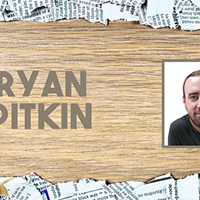
You're the Best... of Charlotte
Oct 27, 2018 -
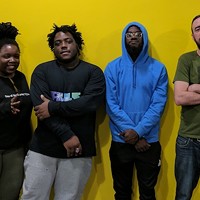
Listen Up: Cuzo Key and FLLS Go 'Universal' on 'Local Vibes'
Oct 25, 2018 -
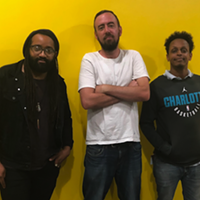
Listen Up: KANG is Back and Bla/Alt on 'Local Vibes'
Oct 18, 2018 - More »
More by Christina Wilkie
-

Global thinker: Jim Rogers
Aug 29, 2012 - More »
Calendar
-

Queen Charlotte Fair @ Route 29 Pavilion
-

NEW WINDOW GALLERY-Pat Rhea-ACRYLIC PAINTINGS-April 05-30 2024 VALDESE, NC 28690 @ New Window Gallery/Play It Again Records
- Through April 30, 12 p.m.
-

TheDiscountCodes
-

"Blood Residue Analysis of Paleoamerican Stone Tools in the Carolinas" @ Native American Studies Center
- Fri., April 26, 12-1 p.m.
-

Brightfire Music and Arts Festival @ GreenLife Family Farms
-
5 Online Player Communities to Join in Michigan
-
A beginners guide to online sports betting in the US
-
I Changed my Sex. Now What?
Scott Turner Schofield's rapid transit to a new identity

